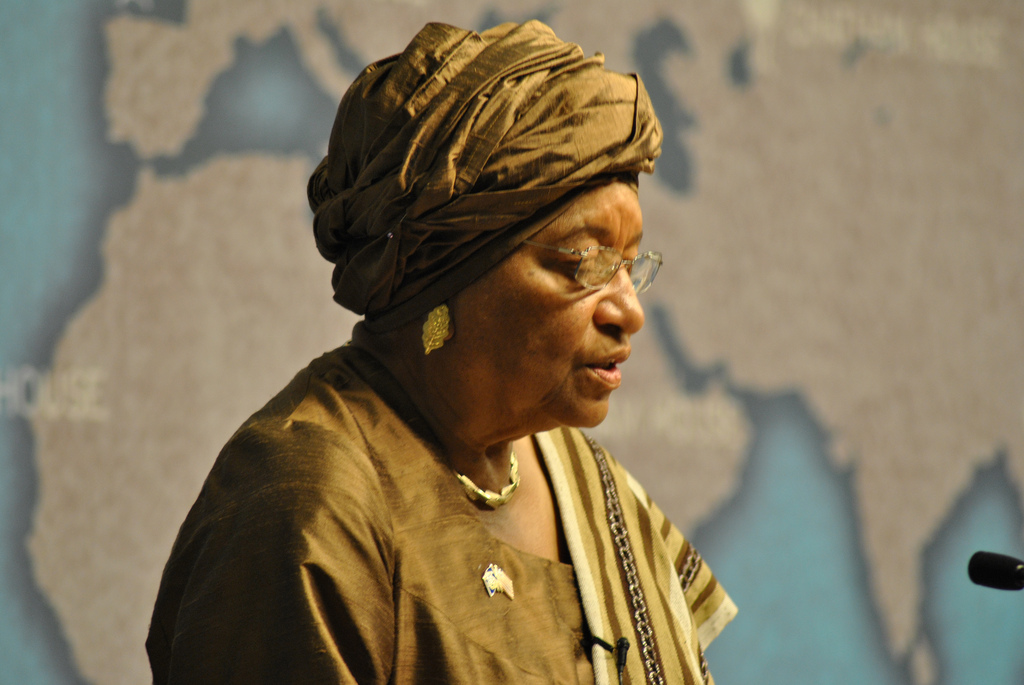MONROVIA, Montserrado – Jerome Verdier, the Executive Chairman of the Liberia Anti-Corruption Commission, says the fight against corruption has not been lost.
Verdier said although achieving an end to corruption is a difficult task, and much of the goals have not been met, the country is preparing itself for a period when there is complete compliance and respect for the rule of law. He said the country is heading in the right direction.
“People feel that the fight against corruption is lost because they may have ascribed a definite time to achieve certain things, which I think is wrong,†he said.
He said under the current administration, sitting lawmakers – including a former House Speaker – are being investigated for corruption for the first time in more than 150 years of the country’s history.
In her last State of the Nation address, President Ellen Johnson Sirleaf admitted, among other things, to losing the battle against corruption and failing to achieve total reconciliation.
Sirleaf said despite the gains made during her administration, corruption has continued to pose serious challenges to the government.
“We have not fully met the anti-corruption pledge that we made in 2006,†she said. “It is not because of the lack of political will to do so, but because of the intractability of dependency and dishonesty cultivated from years of deprivation and poor governance. We could not reap – you cannot reap – in government what has not been instilled in families, schools, churches, mosques and society in general.â€
She said, nevertheless, the administration’s efforts to fight corruption were recognized as the country met eligibility requirements for the Millennium Challenge Corporation by consistently passing the rigid corruption index. All countries receiving United States foreign aid through this agency are required to meet a group of requirements.
“Indeed, our administration has placed the nation on a path that will make it easier for successive governments to meet established anti-corruption targets,†she added.
According to Sirleaf, the government created more integrity institutions and formulated more laws and policies in the fight against corruption than any other government in Liberia’s history.
In 2006, the president in her inaugural address had said corruption under her leadership would be “public enemy number-one.â€
In the later part of her administration, Sirleaf described corruption as a systemic pandemic.
Verdier, speaking in a Truth FM radio interview Tuesday, said though difficult, a lot can be achieved with persistence and consistency.
“The Liberian people expect that by now, we would have a lot of people lined up behind bars; that has not happened, but the cases are actually amassing,†he said. “We are getting the cases, we are looking for opportunities, and I think with time, the orientation, the circuit of the Liberian people, lawyers, jurors, judges, lawmakers, and executives will change. I think the fight has been difficult and we have not achieved most of the benchmarks, but I don’t think the fight has been lost.â€
Verdier said certain individuals slow the fight against corruption by not accepting interrogations, inquiries, and inquests made about corruption.
“People think that the LACC is an outsider institution,†he said. “Even Liberians celebrate public officials who are involved in corruption instead of shaming them because they are beneficiaries.â€
According to him, strengthening and supporting existing policies and anti-graft institutions in Liberia can further sustain the fight.
Responding to criticisms about the government losing legal cases, Verdier said due process is meant to provide opportunities for people to defend themselves and not necessarily everyone must be convicted.
“LACC is doing [its] part by providing investigation, amassing evidence and taking these people to court when and if it can, while at the same time traversing the laws. So when we go to court and someone is found not guilty, how do you blame LACC for that?†he asked. “Justice does not mean that somebody has to be guilty all the time. Justice means that everybody is given equal opportunity under the law.â€
He said according to law, the state does not have a right to take appeals to rulings in the trial courts when it loses a case. However, Verdier said what remains frustrating to the commission is its limitations under the laws of trial cases.
“We’ve recommended in all our annual and quarterly reports that we need to do something to amend the laws so that LACC can be able to prosecute cases directly instead of waiting for three months,†he said.
LACC was created in 2008 by the National Legislature with a broad mandate and functions to implement appropriate measures and undertake programs geared toward investigating, prosecuting and preventing acts of corruption, including educating the public about the ills of corruption and the benefits of its eradication.
The commission does not have direct prosecuting powers. It investigates and recommends prosecutions to the Ministry of Justice which can then directly prosecute for the state. However, the commission can prosecute if the Ministry of Justice does not act on its recommendations after three months.
Recently, Liberian economist and former presidential candidate Togbah Nah Tipoteh said the high economy crisis is caused by rampant corruption and not tax imposition.
Featured photo by Chatham House



